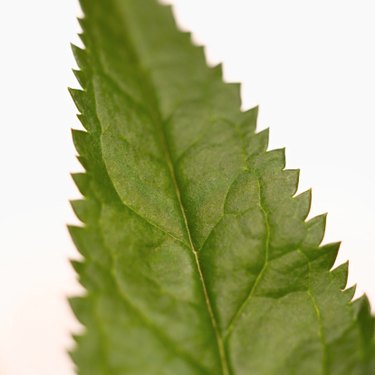
Stinging nettle, referred to as itch weed, has a wide range of medicinal uses. Preliminary and small-scale studies have indicated that the plant might be effective against osteoarthritis, hay fever and benign prostatic hyperplasia. There is a lack of scientific evidence to support the claims that stinging nettle is effective against other ailments, but it is still used in the alternative medicine field. The plant is generally safe if used for less than six months, but side effects and adverse reactions have been reported. Always talk to a medical professional before using any forms of treatment.
Common Complaints
Video of the Day
Stomach irritation is a side effect that can occur when ingesting the plant. Sweating and fluid retention are other mild side effects. It can also affect and change the menstrual cycle.
Video of the Day
Skin Irritation
Mild skin irritation can occur if the plant comes in contact with skin. When used topically, stinging nettle can also produces hives or rashes. Some people have allergic reactions to the plant, which should be treated by a medical professional.
Pregnancy
Pregnancy tea made with stinging nettle is recommended by some midwives, naturopathic doctors and herbalists because of its vitamins and minerals content. However, the American Pregnancy Association deems the plant as "likely unsafe" during pregnancy. For this reason, it is best to completely avoid stinging nettle if you are pregnant. It is possible that the plant can facilitate uterine contractions, which can cause a miscarriage. The University of Maryland Medical Center also advises against the use of stinging nettle if women are breast-feeding.
Adverse Drug Reactions
Stinging nettle can affect the efficacy of certain prescription drugs. The plant can interfere with blood thinners because stinging nettle can affect blood clotting. Stinging nettle might lower blood pressure, so talk to your doctor before using the plant if you are on any blood pressure medication. Taking diuretics in addition to stinging nettle can increase the risks of dehydration because stinging nettle has diuretic effects. Stinging nettle can also lower blood sugar, so use the plant with caution if you are using drugs for diabetes.